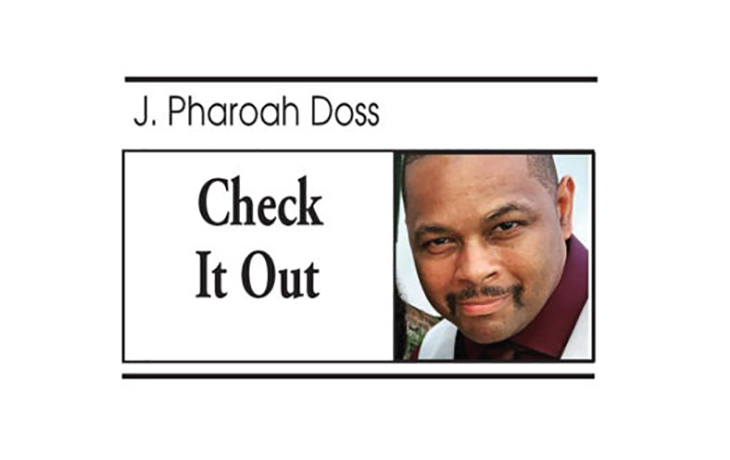STEPHEN A. SMITH
In 2002, the Arkansas Hall of Fame inducted former Democratic President Bill Clinton as an honorary member. The hall acknowledged Clinton as the first non-Black individual.
Toni Morrison, a famous novelist, may have given Clinton an extra stamp of approval with a prior honorary title. Morrison referred to Clinton as the country’s “first Black president” in The New Yorker in 1998.
Morrison claimed that she first heard the idea in chats among Black men during the Clinton Whitewater probe. Morrison claimed Clinton was “Blacker than any actual Black person who could ever be elected in our children’s lifetime. After all, Clinton displayed almost every trope of Blackness: single-parent household, born poor, working-class.”
Regarding the Republican attempt to destroy Clinton over sexual misconduct, Morrison stated that for these Black men, “The message was clear: no matter how smart you are, how hard you work, or how much coin you earn for us, we will put you in your place.”
At the time, no one disputed the idea, which was jokingly repeated.

A decade later, when Barack Obama challenged Hillary Clinton for the Democratic presidential nomination and it was clear that Obama had a good chance of becoming the first Black president, Time Magazine asked Morrison if she regretted her statement.
Morrison wasn’t asked if she regretted calling Clinton “the first Black president” because it reduced Blackness to stereotypes. It was more so: did she regret her rush to “Blacken” Clinton because she never imagined an actual Black president in her lifetime?
Morrison said, “People misunderstood that phrase. I was deploring the way in which Clinton was being treated vis-à-vis the sex scandal that was surrounding him. I said he was being treated like a Black on the street, already guilty.”
This time, Morrison sounded even more off-base.
Clinton was handled in the same way that all politicians are treated by their political opponents, which had nothing to do with how a Black person was treated on the streets. Simply put, Clinton’s sex scandal was not a metaphorical Rodney King beating.
The Clintons fell out of favor with the Black Lives Matter generation when Hillary ran for president in 2016. Unlike Blacks in the 1990s who praised Clinton’s economic policies, the BLM generation condemned Clinton for supporting the 1994 crime bill, which they believe contributed to Black mass incarceration.
The BLM generation’s writers rejected Clinton’s “Blackness” in their essays, highlighting what should have been obvious in 1998: Clinton was not the first Black president.
Hillary Clinton lost to Donald Trump; Trump lost to the current president; and now the former president is running again. During his presidency, Trump faced impeachment twice and was accused of attempting to overthrow the government.
Since leaving office, Trump has faced four criminal indictments in four cities, totaling 91 felony counts. Trump supporters believe there is a conspiracy to prevent Trump from becoming president again, but Trump is being treated the same way all politicians are handled by their political opponents.
Would anyone dare say Trump is being treated like a “Black on the street” because of his legal issues?
A few months ago, Trump stated at the Black Conservative Federation’s annual banquet in Columbia, South Carolina, that he was indicted for nothing, and a lot of people told him that’s why Black people like him, because they have been hurt so badly and discriminated against, and Black people believe the same thing is happening to him.
The Black conservatives laughed.
Blacks on the left who oppose Trump called his comments ultra-racist because Trump was equating Blackness with criminality, but Trump has not been destroyed by being labeled a racist, as past Republicans have. Typically, when the Black left accuses a prominent person of racism, they can force that person to apologize, which is an admission of guilt, and then that person must restore their reputation.
Because the Black left cannot damage Trump’s reputation, they frequently attack the reputations of people they consider Trump sympathizers. This time, their target was Stephen A. Smith, a sports analyst.
Smith appeared on Sean Hannity’s program and informed him that Trump was telling the truth.
Smith explained, “When you see the law, law enforcement, the court system, and everything else working against him, it is something that Black people across the country can relate to. We’ve seen it happen with some of our historical and iconic figures. So, no matter what race or ethnicity you may emanate from, we relate to you when you’re suffering like that.”
Because of the way the Black left denigrated Smith on social media, one may have assumed Smith referred to Trump as the first Black Republican president.
Despite Smith’s public apology to the Black community for defending Trump, those seeking to damage his reputation deemed it insufficient. The Grio published a piece called Stephen A. Smith’s non-apology for his statements on ‘Hannity’ about Trump and Black people, did not help. The author said, “There’s no real value in having Smith talk about Black people and Trump. As we’ve seen, he doesn’t even know the right answer.”
And if you don’t give the right answer, the Black left in America will treat you “like a n-word on the street.”

